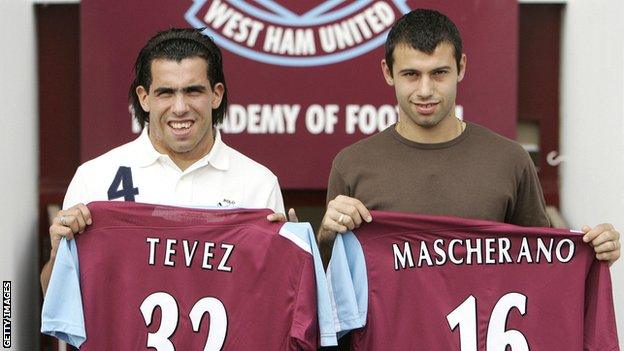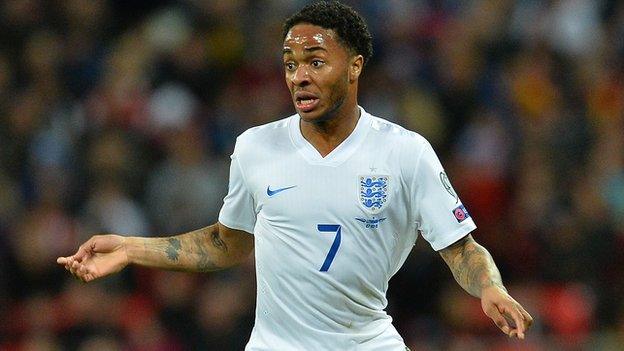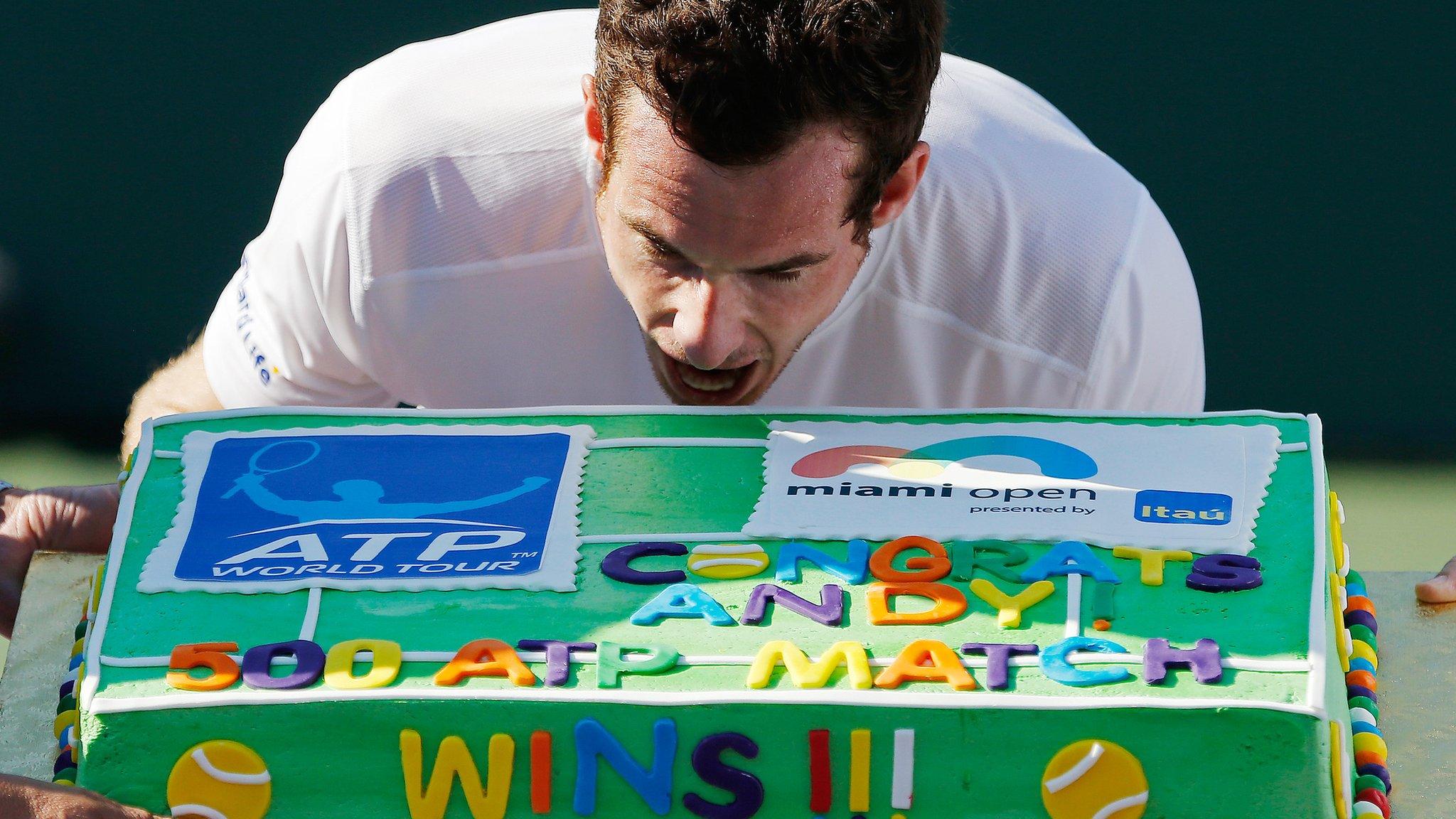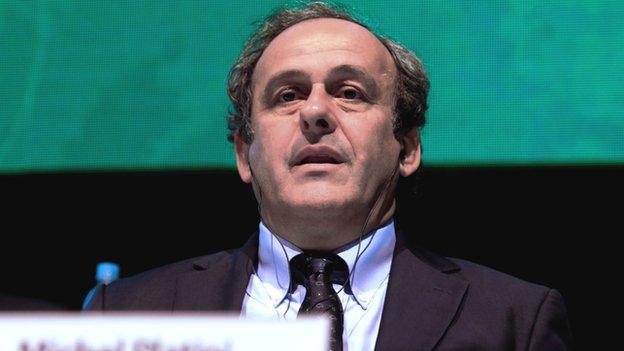Uefa & Fifpro urge Europe to outlaw third-party player ownership
- Published

Carlos Tevez and Javier Mascherano were bought by West Ham from a third-party owner
Uefa and world players' union Fifpro have asked the European Commission to outlaw third-party player ownership.
They argue that businesses or funds owning the economic rights to players can be harmful and undermine football's integrity.
A global ban on third-party ownership by the sport's world governing body, Fifa, comes into effect on 1 May.
However, some Spanish and Portuguese clubs want to continue the practice and have already lodged a complaint.
It is understood Wednesday's move by Uefa and Fifpro is designed to counteract that earlier complaint to the European Commission by the Spanish and Portuguese leagues.
Uefa president Michel Platini has likened third-party ownership to "slavery".
And football's European governing body has queried the motives of "investment funds or generally unidentified, corporate entities" who might try to influence the transfer of players to increase their investments.
In a statement, Uefa said young and vulnerable players can be exploited, while clubs can also become financially unstable.
The statement read: "Uefa and Fifpro therefore call on the European Commission to investigate the practice of third-party ownership and to fully endorse Fifa's decision to prohibit such arrangements."
Third-party ownership is already banned in Britain. It was ended by the English Premier League at the start of the 2008-09 season, following the discovery that the economic rights of Argentine players Carlos Tevez and Javier Mascherano, external were owned by two offshore companies when they joined West Ham in 2006.
- Published1 April 2015

- Published1 April 2015
- Published31 March 2015

- Published16 March 2015

- Published20 June 2016

- Published7 June 2019
